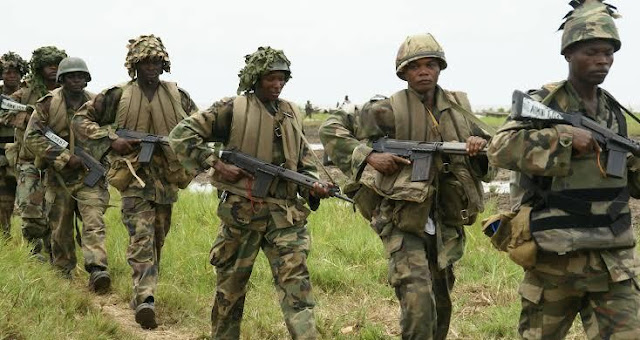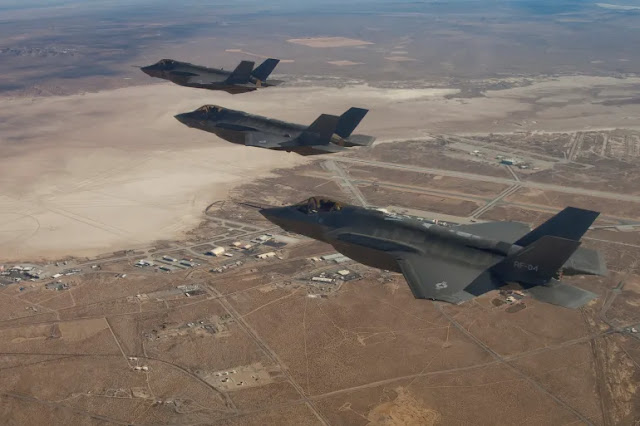In a series of decisive operations across Nigeria’s North-West and North-Central regions, the Nigerian military has demonstrated its resolve to combat insecurity, neutralizing 15 terrorists in Katsina State and apprehending 13 suspects in Kaduna and Benue States. These operations, conducted between August 25 and September 5, 2025, underscore the armed forces’ ongoing efforts to restore peace and stability in areas plagued by banditry, kidnapping, and terrorism. The successes, announced by the Defence Headquarters in Abuja, highlight the courage, coordination, and determination of Nigerian troops, as well as the critical role of joint operations with other security agencies in tackling the nation’s complex security challenges.
The operations in Katsina, Kaduna, and Benue are part of a broader nationwide campaign to dismantle criminal networks and protect vulnerable communities. In Katsina, troops engaged armed bandits in fierce battles, neutralizing 15 and recovering significant caches of weapons and ammunition. In Kaduna and Benue, 13 suspects linked to various criminal activities, including terrorism and illegal arms trafficking, were apprehended, dealing a blow to the operational capabilities of criminal groups. These achievements come at a critical time, as Nigeria grapples with escalating insecurity that has disrupted lives, displaced communities, and hindered economic development.
This article delves into the details of these operations, exploring the historical and socio-political context of insecurity in Katsina, Kaduna, and Benue, the military’s strategies, the broader implications for Nigeria’s security landscape, and the challenges that lie ahead. By examining the successes and their significance, the article highlights the resilience of Nigeria’s armed forces and the urgent need for sustained efforts to achieve lasting peace.
Historical Context: Insecurity in Katsina, Kaduna, and Benue
To fully appreciate the significance of the military’s recent operations, it is essential to understand the historical and socio-political context of insecurity in Katsina, Kaduna, and Benue States. These three states, located in Nigeria’s North-West and North-Central regions, have been epicenters of violence driven by a complex interplay of factors, including banditry, terrorism, communal conflicts, and economic deprivation.
Katsina State: A Hotbed of Banditry
Katsina, located in the North-West, has been severely affected by banditry, a form of organized crime involving armed groups that engage in kidnapping, cattle rustling, and extortion. The state’s proximity to the porous borders with Niger and its vast forests, such as the Rugu Forest, provide hideouts for bandits, making it a challenging terrain for security operations. Over the past decade, banditry has escalated, fueled by economic hardship, unemployment, and conflicts over resources between herders and farmers. The 2019 kidnapping of schoolgirls in Kankara and the 2020 attack on the Government Science Secondary School in Kankara, where over 300 students were abducted, brought global attention to Katsina’s security crisis.
The neutralization of 15 terrorists in Katsina, as reported by the Defence Headquarters, is a significant step in curbing this menace. The operations, conducted under Operation Fasan Yamma, targeted armed gangs in areas like Batsari, Jibia, and Danmusa, which have been hotspots for bandit activity. The recovery of rifles, ammunition, and motorcycles indicates the scale of the threat and the military’s success in disrupting the bandits’ logistics.
Kaduna State: A Nexus of Violence
Kaduna, also in the North-West, is one of Nigeria’s most volatile states, facing a mix of banditry, kidnapping, and ethno-religious conflicts. The state’s strategic location, connecting the northern and southern parts of Nigeria, makes it a hub for both legitimate trade and criminal activities. Areas like Birnin Gwari and Chikun have become notorious for bandit attacks, with highways such as the Kaduna-Abuja road frequently targeted for kidnappings. The 2022 attack on the Abuja-Kaduna train, which killed several passengers and led to the abduction of dozens, underscored the severity of the crisis.
The apprehension of suspects in Kaduna, including those involved in illicit drug trafficking and arms smuggling, highlights the multifaceted nature of insecurity in the state. Joint operations with the police and other agencies, as reported by sources like TVC News, demonstrate the importance of collaboration in tackling crime. The interception of a gunrunner along the Kwoi-Keffi Road in Jama’a Local Government Area, concealing an AK-47 rifle in a sack of animal feed, further illustrates the sophisticated methods used by criminals and the vigilance required to counter them.
Benue State: Communal Conflicts and Kidnapping
Benue, in the North-Central region, is known as Nigeria’s “Food Basket” due to its agricultural productivity. However, the state has been plagued by conflicts between herders and farmers, as well as kidnapping and banditry. The fertile lands along the Benue River have become a flashpoint for resource disputes, exacerbated by climate change and population growth. The 2018 massacre in Guma and Logo Local Government Areas, where dozens of farmers were killed by suspected herders, highlighted the scale of the crisis.
The military’s operations in Benue, particularly under Operation Whirl Stroke, have focused on rescuing kidnapped victims and apprehending suspects. The rescue of 27 passengers in Amoda, Ohimini Local Government Area, and the apprehension of 13 suspects, as reported by sources like The Nation, are significant achievements. These operations not only save lives but also disrupt the networks that perpetuate violence, sending a strong message to criminal elements.
The Military Operations: Strategies and Outcomes
The recent operations in Katsina, Kaduna, and Benue are part of a broader military campaign to address Nigeria’s security challenges. Coordinated by the Defence Headquarters, these efforts involve multiple operations, including Operation Hadin Kai in the North-East, Operation Fasan Yamma in the North-West, and Operation Whirl Stroke in the North-Central. The successes in Katsina, Kaduna, and Benue reflect the military’s strategic approach, which combines kinetic (combat) and non-kinetic (community engagement and intelligence) tactics.
Katsina: Neutralizing the Threat
In Katsina, troops under Operation Fasan Yamma conducted offensive operations targeting bandit enclaves in forested areas. The neutralization of 15 terrorists in Batsari, Jibia, and Danmusa was the result of intelligence-led raids and fierce firefights. According to sources like P.M. News and 21st Century Chronicle, troops recovered significant caches of weapons, including AK-47 rifles, ammunition, and motorcycles, which are critical to bandits’ mobility. The operations also disrupted the terrorists’ supply chains, forcing several to flee with injuries.
The success in Katsina highlights the importance of proactive military engagement. By targeting bandit hideouts in remote areas, troops prevented attacks on communities and infrastructure. The recovery of stolen livestock, such as 73 rams and 15 cows in Kebbi State (a neighboring region), as reported by 21st Century Chronicle, demonstrates the military’s commitment to protecting the livelihoods of residents, many of whom depend on agriculture and pastoralism.
Kaduna: Joint Operations and Arrests
In Kaduna, the apprehension of 15 suspects, including those involved in drug trafficking, underscores the collaborative nature of the operations. Joint efforts with the police and other agencies, as noted by TVC News, targeted criminal networks involved in arms smuggling and illicit activities. The interception of a gunrunner along the Kwoi-Keffi Road, as reported by News Today Nigeria, is a prime example of the military’s vigilance in disrupting the flow of weapons that fuel violence. The recovery of an AK-47 rifle hidden in a sack of animal feed highlights the creative methods used by criminals and the need for sophisticated intelligence.
These arrests are significant because they weaken the operational capacity of criminal groups. By targeting logistics suppliers and drug traffickers, the military is addressing the broader ecosystem of crime, which includes financing and arming bandits. The handover of a neutralized suspect’s body to the Nigeria Police in Sanga, as reported by P.M. News, reflects the military’s commitment to transparency and collaboration with other security agencies.
Benue: Rescue and Disruption
In Benue, Operation Whirl Stroke’s rescue of 27 kidnapped passengers in Amoda and the apprehension of 13 suspects are major victories. The operations, conducted in collaboration with local vigilante groups, targeted criminal hideouts in rural areas. The rescue missions, as reported by The Nation and Emergency Digest, demonstrate the military’s focus on protecting civilians and restoring normalcy. The destruction of criminal hideouts in Benue, Taraba, and Kogi, as well as the recovery of ammunition from a deserted extremist camp in Taraba, further weakens the operational capabilities of criminal groups.
The rescue of kidnapped victims is particularly significant in Benue, where abductions have terrorized communities and disrupted economic activities. By freeing hostages and apprehending suspects, the military is restoring confidence in affected areas, encouraging residents to return to their farms and markets.
Broader Implications for Nigeria’s Security Landscape
The successes in Katsina, Kaduna, and Benue have far-reaching implications for Nigeria’s security and development. These operations demonstrate the effectiveness of coordinated military efforts and the importance of intelligence-driven strategies. By neutralizing terrorists and apprehending suspects, the military is disrupting the networks that perpetuate violence, creating opportunities for communities to rebuild.
Economic Impact
Insecurity has crippled the economies of Katsina, Kaduna, and Benue, where agriculture is a primary source of income. Bandit attacks have forced farmers to abandon their lands, leading to food shortages and rising prices. The military’s operations, by restoring security, pave the way for economic recovery. The return of stolen livestock, as seen in Kebbi, ensures that pastoralists can resume their livelihoods, while the protection of farmlands in Benue supports food security. In Kaduna, securing highways like the Kaduna-Abuja road could boost trade and tourism, benefiting the broader economy.
Social Impact
The social toll of insecurity in these states has been immense, with communities facing displacement, loss of life, and trauma. The rescue of kidnapped victims in Benue and the neutralization of terrorists in Katsina provide hope to residents, signaling that the government is committed to their safety. These operations also empower local communities by involving vigilante groups and fostering trust between civilians and security forces. The handover of suspects to the police, as seen in Kaduna, reinforces the rule of law, ensuring that justice is served transparently.
National Security
At the national level, the operations in Katsina, Kaduna, and Benue contribute to Nigeria’s broader fight against insecurity. The North-West and North-Central regions are critical to the country’s stability, as they connect the northern and southern regions and serve as agricultural hubs. By weakening criminal networks, the military is reducing the threat of banditry and terrorism spilling over into other states. The successes also bolster the morale of security forces, who face immense challenges in combating well-armed groups across vast terrains.
Challenges and the Path Forward
Despite these achievements, significant challenges remain. The persistence of banditry and terrorism in Katsina, Kaduna, and Benue reflects the complexity of Nigeria’s security crisis. Root causes, such as poverty, unemployment, and resource conflicts, must be addressed to achieve lasting peace. The military’s kinetic operations, while effective, must be complemented by non-kinetic measures, such as economic empowerment, education, and community dialogue.
Funding is another challenge. Sustaining large-scale military operations requires significant resources, including advanced equipment, intelligence systems, and training. The government must prioritize defense spending while addressing corruption to ensure that funds are used effectively. Collaboration with international partners, such as the United States and the African Union, could provide technical and financial support to enhance Nigeria’s counter-terrorism efforts.
Community engagement is also critical. The involvement of local vigilante groups in Benue and Kaduna highlights the importance of grassroots participation. The government should expand community policing initiatives, train local security outfits, and involve traditional and religious leaders in peace-building efforts. Addressing the socio-economic drivers of insecurity, such as youth unemployment and land disputes, will require investments in education, vocational training, and conflict resolution mechanisms.
The Global Context: Lessons from Counter-Terrorism
Nigeria’s fight against banditry and terrorism in Katsina, Kaduna, and Benue aligns with global counter-terrorism efforts. Countries like Somalia, Mali, and Afghanistan face similar challenges, where armed groups exploit weak governance and economic hardship. Nigeria can learn from international best practices, such as community-based security models in Kenya and intelligence-sharing frameworks in the Sahel. Partnerships with organizations like the United Nations and the Economic Community of West African States (ECOWAS) could provide technical expertise and funding to bolster Nigeria’s efforts.
Conclusion: A Step Toward Peace and Stability
The neutralization of 15 terrorists in Katsina and the apprehension of 13 suspects in Kaduna and Benue represent significant victories in Nigeria’s fight against insecurity. These operations, conducted with precision and coordination, demonstrate the resilience and determination of the Nigerian military and its partners. By disrupting criminal networks, rescuing victims, and recovering weapons, the armed forces are restoring hope to communities that have endured years of violence and fear.
However, the road to lasting peace is long and complex. The government must address the root causes of insecurity, from poverty to resource conflicts, while sustaining military efforts and fostering community resilience. The successes in Katsina, Kaduna, and Benue are a testament to what is possible when security forces, communities, and government work together. As Nigeria continues its fight against banditry and terrorism, these operations serve as a beacon of hope, signaling a brighter future for the affected regions and the nation as a whole.






